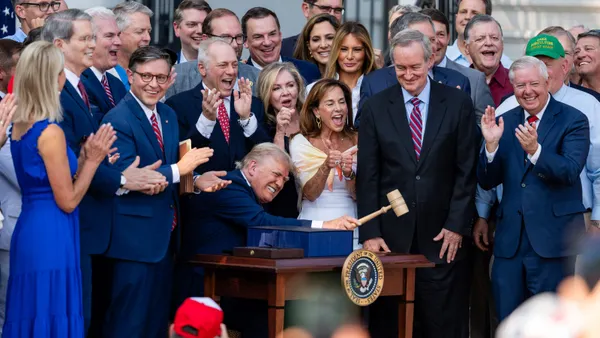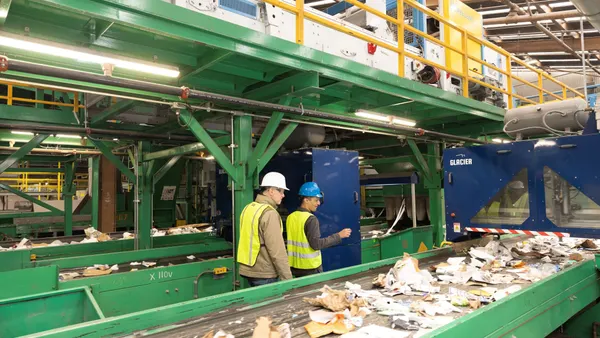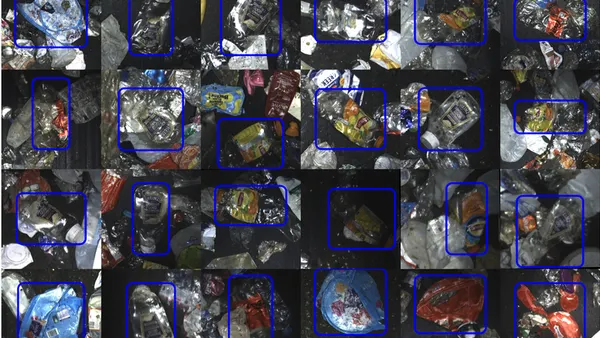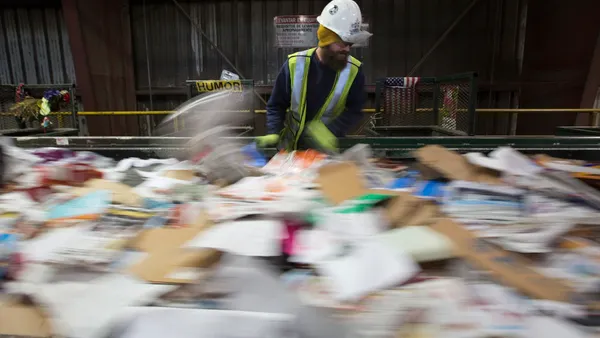Editor’s note: This tracker has not been updated since January 2023 and is no longer active.
Jan. 9: The most recent update to this tracker is the decision by the Greater Greenville Sanitation District, which serves unincorporated areas of Greenville County, South Carolina, to end recycling collection after March 30.
The aftermath of the COVID-19 pandemic’s financial, operational and labor challenges has further strained, and in some cases ended, municipal curbside recycling programs. At the same time, other programs are finding ways to start anew.
Waste Dive first launched this tracker in December 2019 following significant market disruptions spurred most notably by scrap import policy changes in China. Cost, contamination and low participation were all common reasons communities gave for pulling the plug on curbside programs. In the months and years that followed, officials announced anywhere from 300 to 3,000 cancellations, but Waste Dive’s tracking indicates a smaller share (more like 100+) of the thousands of active curbside programs were paused or stopped.
Since then, some municipalities that once appeared on this list have been removed because they’ve restored service, either in similar formats as before or under new structures. In dozens of other communities around the U.S., gig-economy-supported third parties have stepped in or drop-off sites have been established. This year, Waste Dive also began highlighting temporary program suspensions — which may stem from staffing limitations, the aftermath of extreme weather or other severe contract disruptions — as well as fresh program starts. You can read more about our methodology below the tables.
We welcome questions, updates or clarifications at waste.dive.editors@industrydive.com.
Methodology: For the cancellations list, alternatives not promulgated by the municipality and not implemented across a majority of households are not considered comparable replacements. Programs that continue to collect recyclables in separate containers, but send them directly to disposal, are also included. Temporary suspensions include programs that intend to restart within a generally specified timeframe. New curbside programs started beginning in 2022 have also been included.
Research by Maria Rachal, Cole Rosengren, Jakob Geiger and E.A. Crunden. Data graphics assistance from Annie Fu and Greg Linch.









